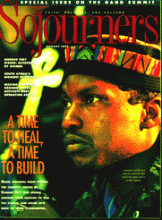Elaine Brown's A Taste of Power is a wrenching, yet dazzling, autobiographical tale of pain and maturation within the Black Panther Party. It is a revolutionary saga that is first and foremost a personal story: Elaine Brown, poor black girl, rises meteorically from ghetto poverty to ill-conceived salvation and redemption within an internationally renowned party of socio-political struggle. It is a hard-driving tale, rich in its history, unrelenting in its honesty, yet abounding in frailty, humor, and love.
This is an intense story, its personal and intimate nature being the strongest aspect of the book. Brown shares many of her most private experiences. Her North Philly childhood was painful; her formative years were punctuated by such eclectic experiences as paternal abandonment, attempted gang rape, elite schooling, proms, and dates.
Her mother attempted valiantly, in Brown's words, to "scavenge...morsels of life" for her only child, yet Brown could not "escape the despair." She was haunted by feelings of emptiness and longed for wholeness and fullness. Her search for personhood--escape from the recurring Ellisonesque feeling of nothingness--drove her involvement in relationships, in social action, in nearly every aspect of life.
Brown's involvement with the Panthers commences with her weekly return to the ghetto to teach piano lessons. Empathizing with her students, she is moved to share deeply in their "nothing-nigger-little-girl-ness." She reconnects with her blackness, which had been temporarily lost through attending a white high school and sojourning in wealthy Hollywood.
Read the Full Article

